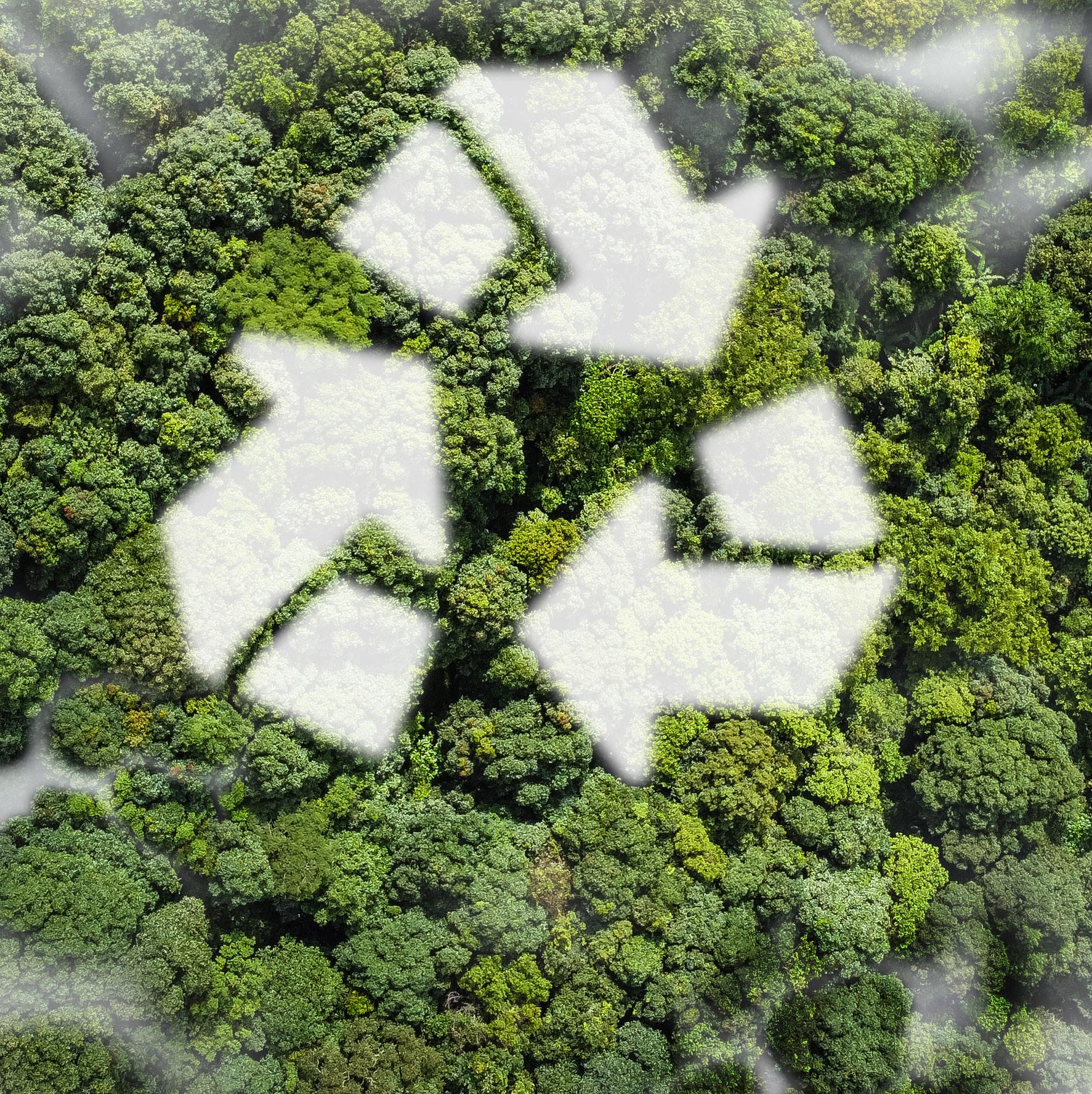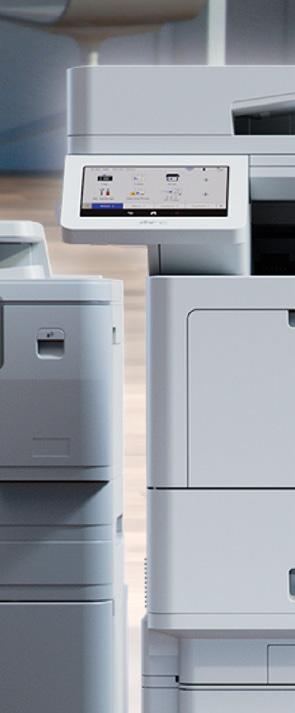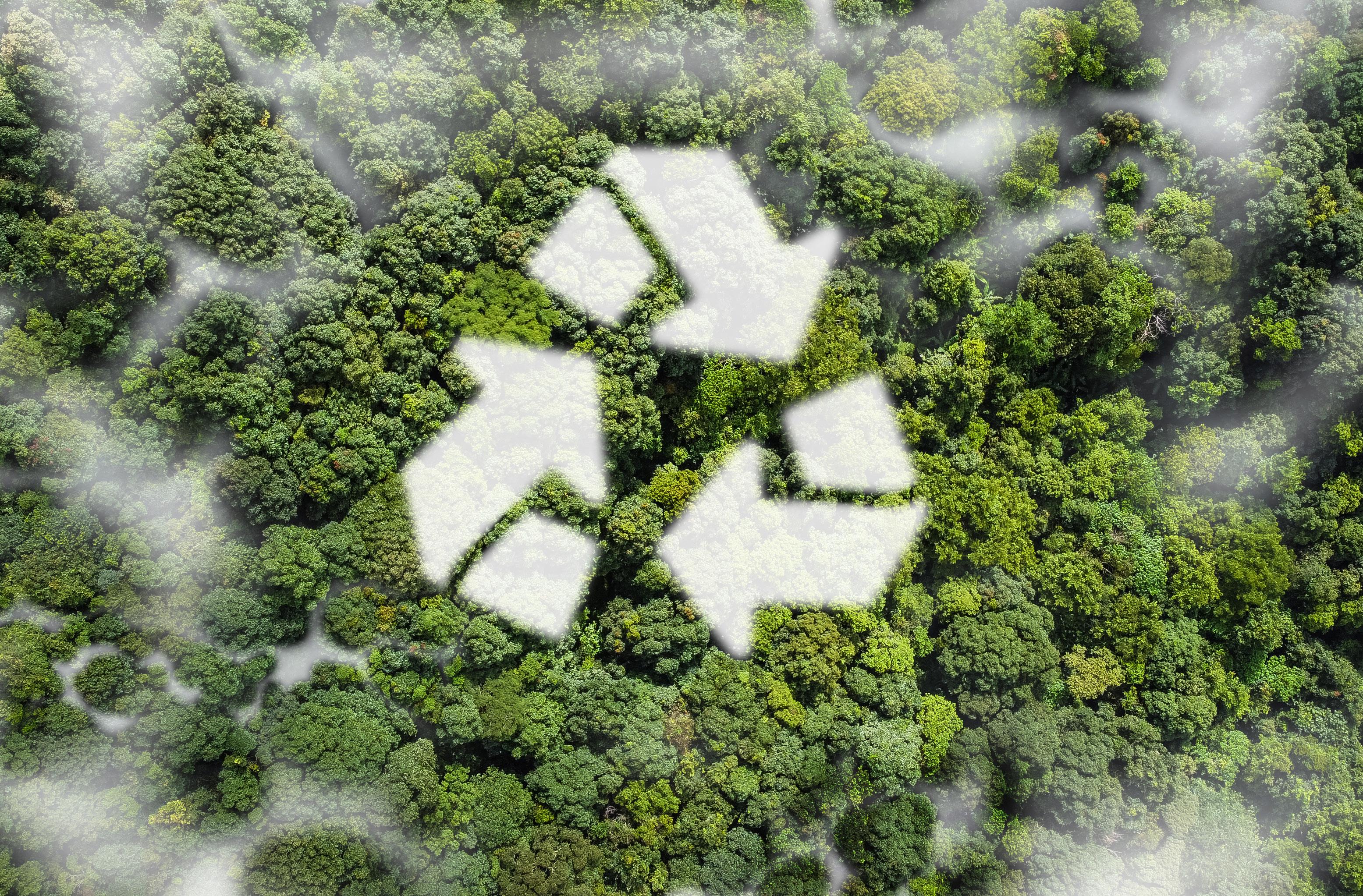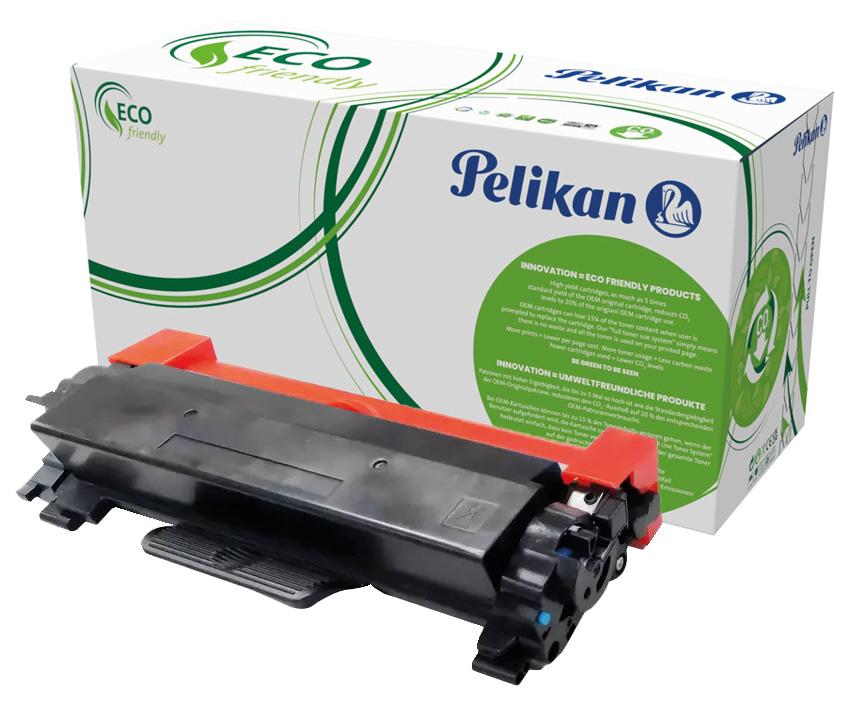

Being green isn’t always easy, but it’s worth it in the end
As we all come down from the high that was Dealer Support LIVE, we’re excited to turn our attention to a very important topic indeed. Last month, on April 22nd, the world celebrated Earth Day, a day where we’re encouraged to turn our minds to the planet and how we interact with it.
The tagline for Earth Day 2023 was ‘invest in our planet,’ a sentiment that is incredibly relevant to the dealer community, but sometimes those investments can seem difficult to make - particularly at a time when costs are weighing so heavily on our businesses.
Listening to Toby Robins at Dealer Support LIVE it became clear that most, if not all, our dealer community want to do the right thing when it comes to reducing CO2 and being more sustainable. The problem is, we don’t always know where to start, or even have time to really think about it at all. Toby’s advice was very straightforward – you can’t eat an elephant without taking the first bite.
Toby is saying that we all must start somewhere. Little actions, however insignificant they may seem, can start to make a difference, with the added bonus that many of these things also deliver savings to our businesses too. Most importantly, it is critical that we know where we are right now, because only by measuring our starting point today can we possibly hope to reflect on our achievements in the future.
In honour of Earth Day, and the ongoing shift in the dealer community to more sustainable practice, our May issue of Dealer Support is dedicated to all things green. Our features look at what net zero really means, and how we can start working towards it, as well as providing some tangible tips on reducing carbon in your business.

We talk to Cameron Mitchell, business unit leader at Konica Minolta, about the company’s green efforts and future plans, and continue our green theme by looking at some of the key innovations in products for more ecofriendly offices. We round it out with discussion around e-waste and what we can do to reduce it, and investigate the alternatives to traditional print consumables and whether they are any good.
Hopefully, our green-themed issue of Dealer Support will serve to inspire, educate and motivate you to do something good for the planet this month and in the future. Tell us about what you have done in your business to be more sustainable or what you are hoping to do via LinkedIn and Twitter @dealersupport.
Finally, it is now time to pass the baton on here at Dealer Support and welcome a new editor to the publication. I’d like to introduce you all to my brilliant colleague Joanna Bailey who will be taking over from me as editor. I’d like to say thank you all for your support, contributions and readership during my time as editor and I’m sure you will all join me in saying a big congratulations and warm welcome to Joanna. As I move onto pastures new, Joanna will be at the helm of continuing our support for the dealer community so please send any article ideas her way!
Ellie Potter and Joanna Bailey Ex-editor and new editorBrother’s print solutions are designed to support your teams in any setting, helping them work securely and e ciently.
































This is...





Scan



INDUSTRY
06 THE MONTH THAT WAS The headline news from the industry
08 NEWS EXTRA UK to avoid recession this year
10 GOING EVER GREENER WITH KONICA MINOLTA
Cameron Mitchell gets under the skin of sustainability for his company
14 CLEVER TACTICS FOR CARBON REDUCTION
Getting to grips with green is never easy, but every journey starts with one small step
LEADERSHIP
16 CHASING NET ZERO: THE UKOS JOURNEY SO FAR We catch up with one of Britain’s greenest dealer businesses – UKOS
18 HOW TO WORK TOWARDS BEING A NET ZERO BUSINESS

Net zero is the holy grail of sustainability - but what does it really mean?
SALES SUCCESS
22 ALTERNATIVES TO ORIGINAL CONSUMABLES Are non-OEM print consumables really any good?

26 E-WASTE – WHAT IS IT AND HOW CAN IT BE REDUCED?
Electronic waste is a headache, but there are ways we can tackle it effectively

30 ECO SOLUTIONS FOR THE MODERN OFFICE
Customers are demanding more eco products; discover what’s out there right now
34 HOW MUCH IS YOUR PAPER?
Steve Carter, MD, Advantia, muses on whether customer service is really as important as price
LIVE IT
36 LIVE IT
Take a break and enjoy some lighthearted fun
38 FATHER P. CLIP
The good Father on electric cars, paperless offices and global warming
39 FINAL WORD
Staying sustainable despite inflation with Richard Wells from Epson UK
“Dealers need to invest in the sustainability of their businesses, rather than continue in the race to the bottom on price”
THE MONTH THAT WAS
UK’s tax on plastic packaging headed for reform
The UK’s plastic packaging tax, introduced in April 2023, is set to see some significant changes; the Department for Business and Trade and the treasury have outlined a string of reforms as part of the annual tax administration and maintenance day, which include alternations arising from this tax.
At present, the plastic packaging tax applies at a rate of £200 per tonne to plastic packaging that is less than 30% recycled content - this covers imported packaging as well as that produced in the UK itself. The changes outlined suggest a move to a ‘mass balance’ approach, which the government says could help to scale innovations in chemical recycling.

Mass balance accounting would involve calculating the percentage of
chemically recycled content in plastic packaging and means that, although the actual content of a piece of packaging may not be recycled, a set portion of recycled content is verified by a thirdparty certificate; it’s a similar approach to that used in sustainability certification schemes relating to things like timber.
The government says that taking this approach could help target more investment into chemical recycling. They argue that this is much needed, as solutions are still being sought for hard-to-recycle products such as black plastics and flexible plastics. In its first nine months, the plastic packaging tax raised almost £208m, and is forecast to raise £277m by the end of its first year.
Konica Minolta sets significant new environmental goals
Konica Minolta has announced significant new environmental goals, including aiming to make its products from more than 90% circulated resources by 2050.
“When Konica Minolta published its EcoVision 2050, in 2009, its targets were in line with what were strict standards for the time. However, as the climate crisis exacerbates, these are no longer appropriate and we have, therefore, committed to setting stricter climate protection targets to fulfil our responsibility as a global company,” explained Olaf Jonas, general manager environmental social governance at Konica Minolta
Business Solutions Europe.
It aims to use more than 90% circulated resources for its products by 2050 - recycled materials and biomaterials. With this goal in mind, the company aims to enable the reuse and recycling of materials as many times as possible to minimise waste and the consumption of natural resources.
As of today, its MFPs already use up to 44% recycled materials and the production printing systems up to 15%. Toner bottles use up to 61% recycled materials and in Europe some countries offer programmes for MFPs to be refurbished according to strict standards.
Amazon to expand in business supplies after pandemic boosts sales in Europe
Retail giant Amazon has laid out its intentions to expand its office supplies business in Europe and internationally after seeing a pandemic boom in demand. The company’s Amazon Business arm grew at an annual rate of 25% from 2020 to 2022, as companies shopped online more frequently.
Amazon Business was launched in 2016 in Germany, and reached the UK the following year; by 2018 it had reached Italy, Spain and France. The firm currently works with Siemens Gamesa, Centrica and ABB, and is branching out into new areas including healthcare, IT and schools too.

It sees business supplies as potentially even more lucrative than its main consumer business, as making a smaller number of bulk deliveries is cheaper than delivering millions of small parcels to individual homes.
UK office workers find workplaces ‘uninspiring’
New research by interior design and fit-out business Claremont suggests that offices could be doing more to make their employees happy at work. Dubbed ‘the workplace oooh,’ the research found that almost half of employees find their workplaces ‘uninspiring.’
It further revealed that a large majority – 84% - expect the office to deliver an experience, rather than being simply a place to get work done.
”In recent years, the very essence of how, when and where we work has changed, and the office has taken on a new role,” said Sarah Syson, Head of Design at Claremont.
“It’s no longer the everyday place for work and so it must try much harder to make itself relevant and inviting. Today, the office needs to give employees the feelings and experiences that lone working leaves us wanting – those rich in face-to-face contact, collaboration and socialisation.”
Red flags putting people off their workplaces included shoddy kitchen facilities, poor and outdated office etiquette, lack of quiet spaces, no wellbeing spaces, concerns about cleanliness, no access to the outdoors - and even bad coffee.
Paper vodka bottles launch in Welsh Tescos
Newport-based Flawless Vodka has launched a paper-based container for its spirit, and has introduced its product in 124 Tesco stores across Wales. The new ‘frugal bottles,’ have a six times lower carbon footprint, and are five times lighter in weight, than conventional glass-bottled vodka.
The flavoured vodkas are housed in a 94% recycled paperboard, with a foodgrade pouch to contain the liquid. It is the first and only commercially available bottle for wine, spirits and olive oil to be made from recycled paper.
The bottles, produced by Frugalpac, are filled at Hensol Castle Distillery, which has set up a whole new line in order to work with the innovative bottles. It is hoped that more brands looking to reduce their carbon footprints will start working with the distillery to make the switch to non-glass alternatives. Frugalpac says moving from glass to paper bottles can reduce packaging carbon emissions by around 84%.

NEWS EXTRA
UK to avoid recession this year
In a new forecast from consultancy PwC, it seems the UK has dodged a recession in 2023. This good news is overshadowed by the projection that inflation will not return to the Bank of England’s two per cent target until the end of next year.
Forecasters had previously expected the longest recession since the financial crisis, following record high inflation of 11.1% last October - but the economy has proven to be more robust than many had projected, and PwC now says there will be no recession this year.
On the downside, there is a high risk that inflation, which has been ripping into family budgets for more than a year, will remain high for quite some time; it still sits at 10.1%, despite the Bank of England’s (BoE’s) efforts to tame it with aggressive interest rates.
According to PwC, the BoE’s goal of returning inflation to a more manageable two per cent is unlikely to come before the end of 2024. Some reductions are expected, particularly given the sharp reduction in international energy prices but, even

then, it doesn’t mean households will end up feeling better off.
PwC said that, since 2021, average prices in the UK have climbed by one-fifth. Barret Kupelian, a senior economist at PwC, said, “Our analysis suggests the UK has very much passed through the eye of the inflationary storm compared to last year, and is showing signs of a return to some sort of normality this year.”
BUSINESS CONFIDENCE IS HIGH
In a separate report, issued by Lloyds Bank, business confidence has reached a high not seen since May last year; the survey of businesses, carried out in the first two weeks of April, shows that confidence levels reached 33% this month, up one percent since March.
It also found that overall economic optimism rose by five points to 28%, which is also close to a one-year high. It says businesses are benefitting from
a fall in wholesale gas and electricity costs, better than anticipated consumer spending, and overall improvements in economic growth forecasts.
Two thirds of the surveyed businesses said they planned to increase prices in the coming year, and nearly half are looking to recruit. Growth in wages hit a seven-month high, with 27% of businesses expecting to increase salaries by at least three per cent.
“It’s great to see business confidence continuing to increase, hitting a near one-year high,” Paul Gordon, managing director of relationship management, business and commercial banking at Lloyds, said. “Hiring intentions have also shown improvement since the start of the year, now sitting significantly higher than pre-lockdown levels. This is an encouraging sign of investment intent, but that could be tempered by wage inflation pressures and a hot employment market.”
The UK will avoid recession in 2023, but inflation will lag into the end of next year
The UK has very much passed through the eye of the inflationary storm
Spectrum Industrial moves to more environmentally friendly signage material
Along with the importance of sustainability within the supply chain, everyone has a part to play to help improve the environmental impact.
AT CENTURION AND SPECTRUM OUR PLEDGE IS TO
● Minimise the consumption of natural resources and energy.
● Monitor our suppliers for ethical trading
● Be committed to a greener environment and aim to instil good practices to our employees to recycle and re-use
● Comply with environmental legislation
● Conduct residential surveys to monitor our impact on our local community
● Ensure 100% of our waste cardboard is recycle or reused
● Ensure 100% of our sign waste material is collected and recycled by our Waste Management Supplier
We take our environmental responsibilities seriously and are always
looking at ways to improve. Over the next 12 months up to April 2024 we are, where possible, phasing out our use of non-recyclable plastics and moving to a well established material within the polypropylene family.
This lightweight, long lasting but more environmentally friendly material is a superb alternative to PVC and foam PVC board, Polypropylene sheet is designed for digital UV printing and represents an excellent alternative to previously used materials and at end of life, the Polypropylene Sign is fully recyclable.
We are already supplying new SKU’s on this material and a number of customers have switched over altogether onto Polypropylene for it’s obvious benefits.
WHAT THIS MEANS FOR YOU AND YOUR CUSTOMERS
Over this time period as we sell through the existing rigid PVC and Foam PVC products, the new Polypropylene material will start being introduced. The thickness of the PP product remains in line with the current signs and our standard of high quality maintained.
We will update product data periodically as supply swaps over and customers listing products in brochures or on web sites will have the opportunity to update information and to include a recyclable symbol.

If you have questions, please do not hesitate to contact us at sales@spectrumindustrial.co.uk or alternatively an end user facing fact sheet is available on request.

As most of us know, businesses have more and more environmental responsibilities from reducing harmful practices, greenhouse gas emissions, general waste and the use of single-use plastics
Going ever greener with Konica Minolta


CAMERON MITCHELL, business unit leader at Konica Minolta, explains how the company has pivoted to new revenue streams while keeping one eye on its sustainability credentials

When the pandemic ripped the heart out of the printing business, Konica Minolta knew it had to find new revenue streams but it didn’t give up on its dreams of adopting ever more ambitious targets for sustainability. We caught up with Cameron Mitchell, Konica Minolta’s business unit leader, to find out how his firm survived the pandemic, and what’s on the horizon for future developments.
“It goes without saying that the last year - in fact, the last two years - has seen some of the most significant disruption this market has ever seen in terms of the consequences of supply chain issues. That’s affected everybody, the whole market – it’s not unique to Konica Minolta. So the last year has really been around staying as close to our resellers as we can, trying to support everybody as best we can through the disruption. In a strange way, despite it being a tough year, it’s probably brought us closer to a lot of our customers.
“Now that we’re out the other side, it’s absolutely full steam ahead. We’ve got plenty of stock in our lines.
We’re now, dare I say, ‘business as usual’. I’m always a bit nervous to say that because you never know what’s right around the corner, in this in this world, but we’re very much foot on the gas, looking for growth.
“We’re ambitious. We’ve got growth targets. We’re not sitting back; we absolutely know what to do to challenge the market with and get back to more than where we were before. We’ve actually got some fairly significant targets that we want to achieve.”
Finding a place in the ‘new normal’ hasn’t been easy. For a company that relied so heavily on print, having more people working from home, or hybrid working, has meant the company has been seeking additional streams of revenue and this has seen a move towards more IT services and closer partnership working.
“We’ve launched a new partner programme that we’re very proud of,” explains Cameron. “We’ve built this from listening to feedback from our partners as to what they need and how we can support them, and it’s built on foundations like accreditation, for example.
“This means we can help our resellers prove their competence in certain areas, whether it be in professional print, office printing or in IT services. This
makes sure that it’s not just about product, and that we actually continue to listen to our resellers, making sure that relationship results in constant feedback so that we can adapt and change.”
Like all businesses, sustainability is a key focus for Konica Minolta, going forward. “Actually, it’s front and centre of our brand, of our company,” says Cameron. That ‘front and centre’ approach has won the firm plenty of accolades over the years, including being listed in the FTSE4Good Index since 2003.

More recently, the company has been awarded the gold level recognition medal in the EcoVadis 2023 sustainability ratings - a listing of the 100 most sustainable corporations in the world produced by Corporate Knights for the fifth consecutive year – and a ranking in the top five per cent of companies for sustainability by S&P Global.
While the company has been raking in the awards for its efforts to date, it’s not done with greening its business yet. Konica Minolta Business Solutions Europe has implemented an environment management system which was awarded ISO 140001 certification in 2017 and again in 2020. The company continues to push forward with new initiatives, not just in its own business but in its supply chain and customer base too.
For many dealers, finding a reason to be green hasn’t always come easily and, given the current cost-conscious environment, finding budget to invest in sustainable solutions can be challenging - but Cameron points out that there is a sound business basis to such investments.
“Recently, in a lot of requests for information, tenders and quotations, sustainability seems to have moved front and centre, so, I think it would be
"
foolish to ignore it; it’s clearly got customer demand. I think everybody’s very socially conscious now, and the environment has never been so critical in terms of the focus that’s on it. I think it needs to be part of everybody’s strategy and cannot be ignored.”
A key area of sustainability calls for fewer new replacement products and more reuse and recycling of the old. For a brand like Konica Minolta, this is unchartered territory; customers with aging or unsuitable machines almost always got a nice shiny new one, but Cameron says that doesn’t always have to be the case.
“One of the things we realised through lockdown, when new machines weren’t available, was that a lot of contracts got renewed; machines got moved around and reused with minimal disruption. Don’t always assume that a new machine is the only answer; it can be a mix of devices. It can be a bit of redeployment; it can be extending contracts. It’s all about making sure that you listen to your customer and understand what their sustainability objective is, because everybody’s got one.”
In a strange way, despite it being a tough year, it’s probably brought us closer to a lot of our customers
DEMANDING MORE FROM THE SUPPLY CHAIN
As well as getting their own house in order, and offering more sustainable solutions to their customers, the team at Konica Minolta also strives to encourage its suppliers to be as green as they can be. The firm doesn’t run its own vehicles – it uses independent carriers, and chooses carefully which ones to work with. Its long-term delivery partner (and sub-contractor) introduced a new fleet, exclusively for Konica Minolta consignments, which runs on hydrogenated vegetable oil. This eco-friendly synthetic paraffinic fuel is of very high quality, stable, and composed of 100% sustainable raw materials. As an alternative to diesel, it offers a reduction in greenhouse gas emissions of up to 90%.
Alongside this, the firm’s toner delivery partnerDPD - currently has a number of green initiatives that complement Konica Minolta’s efforts towards carbon reduction. DPD’s ‘driving change’ CSR programme has been reducing carbon emissions, and offsetting the remaining emissions through clean energy initiatives, in order to be able to offer carbon neutral delivery to customers - at no extra cost.
An important part of the business benefits of carbon reduction is communicating achievements to stakeholders. Konica Minolta’s customers are able to view carbon reductions achieved through carbon neutral deliveries via information being displayed on all delivery notes.


A COMMITMENT TO A BRIGHTER FUTURE
This month Konica Minolta confirmed its intentions to become a net zero business by 2050, including emissions from scopes 1, 2 and 3. Scopes 1 and 2 relate to direct or purchased emissions (heating, electricity, waste); scope 3, emissions from the supply chain, is much more difficult to tackle.
“When Konica Minolta published its EcoVision 2050 in 2009, the targets were in line with what were strict standards for the time,” explained Cameron. “However, as the climate crisis exacerbates, these are no longer appropriate. We have, therefore, committed to setting stricter climate protection targets to fulfil our responsibility as a global company. We also support our customers and suppliers in achieving their environmental goals.”
The sustainability efforts of Konica Minolta are laudable indeed, and just go to show the successes that can come when ‘good enough’ just won’t do.
We’re very much foot on the gas, looking for growth
A new future in your hands with New Future Multi, the high quality office paper that has been specifically developed to meet the highest environmental standards.





Clever tactics for carbon reduction
Getting to grips with carbon reduction can feel like a mountain to climb - but every journey starts with one small step
Reducing carbon is no longer a nice-to-have, but an essential part of our businesses and future strategies - but knowing where to start can be tough, particularly when we’re all so busy with the day-to-day stuff. Thankfully, not all carbon-reducing activities require exorbitant amounts of time or energy, as we’ll explore here.
THE IMPORTANCE OF MEASURING
Before we get into ways you can reduce your carbon footprint, it’s essential to know what it is right now. Having a baseline for where you are before any action is taken will allow you to measure what progress has been made - not just for you, but for
your customers and stakeholders too. There are a number of free tools available online to help you calculate your carbon footprint from basic data like energy bills and fuel expenses. At the other end of the scale, more complex calculators start to bring in things like water, waste, supply chain and more. However, if you’re just at the start of your carbon reduction journey, that’s probably a step too far, for now.
Having a measured carbon footprint baseline will give you quantifiable results arising from the actions you take, and that’s crucial if you want to market your sustainability efforts – and you should – because you’ll have the data to back up your claims.
Tim Beaumont, managing director, Nemo Office Club, believes you can’t underestimate
the importance of having concrete data to hand. “Reducing carbon emissions and environmental impact is in the mindset of every dealer now. They know that ‘greenwashing’ will not work if they are to meet customer demands.”
ABOUT CARBON OFFSETTING
Probably the most well-known, and frequently discussed, means of shouldering some CO2 responsibility is carbon offsetting. This, in essence, means paying money to support an initiative that takes carbon out of the atmosphere, in order to ‘offset’ some of the carbon you are producing. Not all carbon offset schemes are the same. The often cited one of planting trees is frequently criticised, as it will take many years for the trees to absorb the carbon you just emitted - that’s if they don’t die, or
get destroyed, in the meantime. Other examples might be support for renewable energy projects, carbon capture research, or a multitude of other things.
The problem with offsetting is that there is no actual carbon reduction going on at all - sure, a tree is planted, or a windmill erected, but that’s not enough. As Tim says, “Many businesses could be seen to just be writing a cheque to cover up the problem, rather than taking action to solve it.” Carbon offsetting is a good stop-gap if a business is working towards longer-term carbon reduction but, on it’s own, it’s not a solution to the problem.
REDUCING CARBON EMISSIONS, FOR REAL
One of the quickest and easiest ways to reduce carbon emissions is to opt for a renewable energy tariff from your energy supplier. These have become so common now that there is barely any difference in price between a green tariff and a regular one, and any extra you pay will be directed to support green energy generation, including wind, solar, tidal and more.
Switching off lights and appliances in unused rooms is basic, but still important. Reduce low-level standby consumption by turning things off at the wall, particularly if the office is going to be closed
for the weekend. Don’t overfill the kettle when you’re boiling it. Lower your reliance on heating and cooling of the building by practicing good energy efficiency, such as closing the blinds against the hot sun or keeping doors shut in the winter.
These might sound obvious, and not very groundbreaking but, when you start putting them all together, the difference can be significant. The main barrier here is that almost all of these ‘behavioural’ actions require your workforce to ‘help.’ Getting that engagement from your employees, and encouraging everyone to be compliant, will be your biggest challenge.
Beyond these simple actions, small investments can start to make a difference. Replacing old lighting with modern LEDs can save significantly, as can improving the insulation in the building. If you run your own deliveries, Tim points out that this brings real opportunities,
“The optimisation of van routes is a sensible move for any business to reduce costs and carbon footprint, and we encourage members to use this - not just for deliveries but marketing also.
“We have a range of prospecting tools that can be delivered into other businesses in the area, or on the same industrial estate, as an existing delivery, including a postcard that
has been extremely effective. It has the headline ‘We are already making a delivery in your area…’. If a dealer can fill a van with a wider range of products, and make more drops per mile, it’s good for their business and good for the environment.”
SETTING THE EXAMPLE
While reducing CO2 in your own business can go as deep as your pockets (think electric vehicles, solar panels, biomass boilers…) there is also a role for the dealer to play in encouraging their customers and demanding change from their suppliers. “For many companies now the impact on the environment is more important than price,” Tim says. “Dealers need to be wise to this, and invest in the sustainability of their businesses, rather than continue in the race to the bottom on price.”
One member leading the way is Morgan & Morgan in South Wales, which committed to being carbon neutral by 2025, and are well on course to achieve that. As managing director, Michael Morgan, explains, “We are committed to making positive change - not just being ecofriendly and reducing waste, which in itself is good, but also championing sustainability across our business, and those of our clients.”
Being eco-champions ourselves by eliminating as much CO2 as it is within our reach to do is a good first step, and shouting about our achievements could and should inspire others to follow in our footsteps - but by demanding more from our suppliers, and also supporting our clients in making their own carbon reductions, together, we really can change the world.
The optimisation of van routes is a sensible move for any business to reduce costs and carbon footprint
Chasing net zero: the UKOS journey so far
What if sustainability wasn’t just a bolt-on part of your business? What if it was so deeply ingrained that every business decision had the good of the environment at heart? That’s how things are for UKOS, a Hertfordshire-based business supplies firm with an impressive track record in sustainability. We sat down with managing director, Ian Haywood to find out how it’s done.
“I believe that to be commercially successful, an organisation must give full consideration to sustainability - it’s no longer an option. The challenge is to keep moving and improving - we’re very focused on that,”Ian said.
UKOS is quite far along its sustainability road. Sustainability is not just part of the business strategy; it’s the core of everything UKOS does. “We’ve been on a sustainability journey since before 2010 when The Sunday Times rated us ‘The Greenest Company in Great Britain,’ so it’s always been core to our business,” Ian explains. “I make no apology for saying one of the key drivers is commercial consideration.”
He has a point. Commercially, sustainability ticks many boxes. It often leads to efficiency and cost savings for everyone in the supply chain and so is a win-win all round.
LOW CARBON LOGISTICS
Turning to the future, Ian’s emphasis is on further diversification, something he says was well-progressed over the past year. However, as always, the main focus is sustainability, “in particular we are working hard on low carbon logistics.” Since 2008 the company has achieved a 72% reduction in delivery miles. This has been achieved through three key levers – eco delivery schedules, designed to reduce the number of deliveries being undertaken, encouraging customers to increase average order sizes and introducing telematic software to facilitate more efficient driving behaviour. Logistics - and customer deliveries in particular - is one of a dealers’ biggest contributions to their carbon footprint. As a business on the path to net zero, UKOS is keenly focused on cracking that nut. The company has switched its van fleet to electric delivery vehicles and recently opened a low carbon logistics hub. Collaboration with customers and suppliers to remove carbon from the joint supply chain is considered integral to the business model.
SELLING SUSTAINABILITY


From print to facilities supplies, office interiors to workwear and PPE, UKOS has found a way to integrate sustainability into every arm of
the business. At the other end of the cycle, the firm offers various recycling solutions across every product range, and actively works to help its customers reduce their consumption of business supplies - but is selling sustainability easy? Ian says it can be.“Sustainable solutions are often more efficient and, typically, reduce costs - a very helpful coincidence which aids the sales process. Sustainable products can be more challenging, certainly, but the key considerations are communication, data, clear facts and collaboration with your customers.”
Product may be challenging, but UKOS is making inroads into offering its customers the most sustainable solutions out there. In it's catalogue it lists more than 2,250 sustainable products, made from ingredients that are responsibly sourced, with low or reduced carbon footprints, non-polluting manufacturing processes and responsible use of packaging.
In terms of products, these range from Eucalyptus Globus fibre paper, sustainable
IAN HAYWOOD, MD at UKOS, explains how his company is making genuine progress on sustainability
interiors products and fit-out solutions, environmentally friendly PPE and janitorial products, and Fairtrade catering products. UKOS has also adopted a single-use plastic policy, which aims to reduce single-use plastics in its product range and to offer composable alternatives where possible.
Offering sustainability as part of your proposition isn’t always easy, but it is important that dealers implement truly sustainable solutions, and avoid anything which might be perceived as greenwashing. “Selling sustainability is an open door - in fact, more and more, it’s becoming a condition of doing business,” says Ian.
“I would suggest that dealers who are still early in their sustainability journeys focus on actually delivering real sustainability and sustainable solutions. Selling them won’t be a problem!”
PRESSING AHEAD ON THE JOURNEY
For UKOS, the journey is well underway, but it’s far from over. As well as adopting electric delivery vehicles, the company has opened a low-carbon warehouse, complete with ground source heating and cooling, solar power, high-spec insulation and LED auto lighting.
“The reduction in use of fossil fuel energy is enormous,” Ian is keen to point out.
The long-term objective of UKOS is
TOP TIPS FOR REACHING NET ZERO
● Know your baseline – measure your carbon footprint.
● Deal with the easy wins first –switching things off when not in use, for example.
● Think about water, waste and materials, as well as energy.
● Engage employees – make sustainability a core part of your culture.
● Switch to a green energy supplier for a quick win.

● Share your progress, and shout about your achievements.
to eliminate waste and carbon across its value chain. For those familiar with net zero, this is the oh-so-tricky Scope 3 target, which considers emissions that businesses are indirectly responsible for which means driving change among its suppliers, as well as within its own business.
Scope 3 is well known to be the most difficult of all the net zero targets, and the one that terrifies most business owners, but UKOS is taking the bull by the horns, and is actively working in collaboration with their supply chain partners.
Looking ahead, the UKOS journey towards net zero continues. “We expect to achieve some key certification later this year, which we’re very excited about and, of course, net zero is a major focus. We have also just begun our journey toward becoming a B-Corp. However, greater collaboration and re-engineering in our supply chain is where we feel real and tangible progress can be best achieved.”
The great work already done by UKOS, and its ongoing pursuit of net zero status, serves as an inspiration to us all. It just goes to prove it can be done, and gives hope for a greener future.
To be commercially successful, an organisation must give full consideration to sustainability - it’s no longer an option
How to work towards being a net zero business
Going green is all the rage, and businesses of all shapes and sizes are seeking to reduce their impact on the environment. Some started their sustainability journeys under their own steam, while others are being pushed towards it in order to achieve standards or maintain compliance.
In 2019 the UK government committed to reducing the nation’s net greenhouse gas emissions by at least 100% by 2050 - that might seem a long way off, but all that time will need to be used wisely if we are to reach this ambitious ‘net zero’ goal.
WHAT DOES ‘NET ZERO’ REALLY MEAN?





























































Putting it simply, ‘net zero’ means fewer greenhouse gasses are being added to the atmosphere than are being taken out so, if the UK is adding a billion tonnes of CO2 to the environment but, through other projects, is removing a billion or more, then we’re at net zero.

























































































































For businesses, the government categorises emissions in three tiers. Scope 1 emissions are those which the company makes directly, for example by running vehicles, machinery, and boilers for heating. Scope 2 are indirect emissions, such as when the electricity it uses is being produced. And Scope 3 are the emissions indirectly associated with the

Net zero is the holy grail of sustainability, but achieving it is not easy, or cheap
company, such as those produced by the suppliers it uses. For anyone starting on the net zero journey, Scope 1 is the place to focus on. Scope 2 can be trickier to tackle, while Scope 3 puts most business-leader’s heads in a spin. But don’t be disheartened by the challenges of Scope 3 – we all need to start somewhere, and the simple actions can often be the most effective.
WORKING IN PARTNERSHIP

















































































































Moving towards net zero can be easier to do when we work together. Paul Savill, product manager- office and digital papers at Antalis, explains, “Carbon reduction and climate change are, undoubtedly, two of the biggest challenges of the modern age. Whilst organisations will be dedicating huge resources to this, their business partners/suppliers may hold the keys to some effective, and simple to implement, initiatives.”
Antalis brought us the world’s first carbon-neutral cartonboard in 2022, manufactured at a fossil-fuel-free mill in Sweden. The firm also offers a range of papers that are recycled, carbon neutral and/or include carbon offsetting credits. Although changing the type of paper used in the office might seem a small step, Paul believes it is still very important.
“Office papers are often first in line when questions around sustainability and the environment are concerned. They are often mistakenly identified as part of the problem whereas, in reality, they can be a gateway to a useful carbon reducing solution.”









Many suppliers now offer CO2-neutral papers, whether through manufacturing, recycling or offsetting. Dealers should work to familiarise themselves with the different options on offer and encourage their customers to make the switch.















































Before any action on CO2 reduction can take place, businesses must define the baseline from which they are starting
GREENING THE DEALERSHIP
Encouraging customers to work towards their net zero goals is one thing but, as dealers, it’s our job to set the example too. There are various tools and resources out there to assist, regardless of the size of business, and setting key milestones will help ensure a purposeful journey. However, crucial to success is having everyone on board when it comes to making improvements.
“For any business looking to improve their environmental performance, it is imperative that the company is 100% committed to doing so,” says Simon Howorth, marketing and design manager at DAMS. “This needs to start right at the top and run right through to all parts of the business, and all employees.”
Before any action on CO2 reduction can take place, businesses must define the baseline from which they are starting. This can be as simple as looking at the energy bills for the business and the amount of fuel put into company vehicles each year. From here, you can see some quick wins through simple actions such as turning off appliances overnight.
However, accurate carbon footprinting of your business will involve going further; it will also look at waste, water use, supplier choices and more. Getting your head around this data can be a chore, but there are handy calculators online that can help. Alternatively,


























































































dealers can work with a third party to calculate and monitor their carbon emissions.








































































Simon recalls his own experience of CO2 footprinting which involved the option of getting help on board, “Dams is a manufacturing business so we partnered with Businesswise Solutions to install many monitoring devices across the business to gather data and establish our high energy use equipment. Once this data is being received, analysed and monitored regularly you can then accurately input initiatives to reduce energy consumption and run the business efficiently.”
ONE SIZE DOES NOT FIT ALL




















































































As we know, every dealer business is completely unique, as is the operation of every one of your customers, so there is no simple solution to getting to net zero. Some actions are pretty obvious and easy - switch off the lights in unused rooms - whereas others will be more complex or challenging - such as renewing the fleet with electric vehicles.
Ultimately, being green isn’t easy, and it certainly isn’t cheap; Simon warns that the investment can be a bitter pill to swallow. “There is significant cost and investment required in becoming an environmentally responsible business. This requires a serious commitment from business owners to not only meet current environmental and social standards, but also set new ones.”
The flip side of this coin is filled with good things for the business that does become truly net zero. Its future will benefit from lower running costs, tax benefits, a sustainable supply chain and employees who are more invested and committed to staying with the company.

Transformation is never easy, but it can be very much worth it in the end.

Carbon reduction and climate change are undoubtedly two of the biggest challenges of the modern age














































Alternatives to original consumables
Printer consumables - the toners, cartridges and ink that make the machine work - have traditionally been the preserve of the printer manufacturer. Original equipment manufacturers (OEM) consumables were, the only safe choice, but were also an expensive commitment to keep up.
Pretty quickly, third parties began to crack the OEM code, offering non-OEM consumables at a fraction of the cost, but these early entrants were not always well-made, often using sub-standard plastics to keep costs low. Reliability, durability and quality all left something to be desired, and many of those who had experimented with non-OEM consumables quickly returned to their OEM suppliers.
But the market has matured a great deal since then. Today’s non-OEM products are a world away from those cheap knockoffs we saw in the early days. Of course, there are still plenty of companies out there who cut corners and bring to market a sub-standard product - but for some of the tried and tested options, performance and reliability is on par, if not even better than, the OEM alternative.
REMANUFACTURED OR COMPATIBLE?
A key difference is ‘remanufactured’ versus ‘compatible.’ ‘Remanufacturing’ cartridges means taking the OEM unit apart and outfitting it with new ink and any perishable parts. ‘Compatible’ cartridges are standalone products, sold brand

The proliferation of lowquality non-OEM print consumables has put people off - but the market has matured, and lower cost, high quality cartridges have a lot to offer
new, that are designed to work perfectly in the print machine. Both have their place in the tapestry of lower-priced printing, but there are some pros and cons to consider.
Remanufactured cartridges have usually gone through one cycle of use. They are extensively cleaned, tested for quality and any worn or damaged components are replaced. They are then reassembled, filled with ink, and brought back to life, saving that cartridge from landfill. However, they are usually not remanufactured again, so this isn’t the most sustainable solution.
Compatible cartridges, on the other hand, are uniquely designed to be different from - and sometimes even superior to - the OEM options, while still being cheaper to buy. “We thought, if we could make a patent safe compatible, then we could change some of the design to make it more environmentally friendly,” explains Steve Weedon, CEO of Print-Rite Europe. “We could also actually make sure we get our cartridges back to remanufacture. So that’s what we did; we made a patent safe compatible cartridge, but deliberately designed so that anyone could re-manufacture it using standard component parts.”
MAKING THE CARTRIDGE BETTER THAN ORIGINAL
For Steve, there were some key problems to be solved in the OEM offering, not least the amount of wasted toner. In many OEM cartridges, waste toner is collected in a hopper; at the end of the life of the cartridge this can account for up to 15% of the original fill.

“What we’ve done in our technology is eliminate it completely and if we eliminate the waste toner, it follows that we use 100% of the toner on the printed page. We have a way of getting that waste toner back to the original toner hopper, so it gets repeatedly put onto the page area for transfer until it runs out. We use all the toner, and that’s a CO2 benefit.”
For end-users, getting as many pages as possible out of a toner cartridge is key, but this comes with a problem in itself. Some remanufacturers boast ‘jumbo’ cartridges that offer more print pages per installation - but without Steve’s recycling technology, that can create a problem, as he explained,
“What happens on a jumbo cartridge application, is that it normally overfills the
Using a higher capacity cartridge can reduce CO2 significantly, while also reducing the cost per page –so it’s a win-win for everyone
reservoir and dumps toner in the machine, and everyone gets angry. Because we eliminated the waste toner, we can extend the yield without the waste toner reservoir overflowing. So, we’ve solved that problem. In fact, we can go up to nine times the OEM.”


From a sustainability viewpoint, that’s quite the breakthrough. Replacement of spent cartridges means vans driving around, packaging being used, and new products being manufactured, all of which adds to the CO2 footprint of printing. Using a higher capacity cartridge can reduce CO2 significantly, while also reducing the cost per page – so it’s a win-win for everyone.
PICK YOUR PRODUCT CAREFULLY
If you’re going to benefit from the meticulous engineering, development and care that has gone into making high performance alternative consumables, you can’t expect to pay the lowest price. There will still be a saving compared with the OEM offer, but targeting the very cheapest product will probably deliver customer a sub-par solution.
Peter Cowan, group chief operations officer at Data Direct stresses the importance of not always picking products based on price alone. “Unfortunately, much of the after-market print supplies industry has become a race to the bottom, where the only influencing factor is price.
“Products are available, in most cases, where quality and performance will match, or surpass, OEM, but it’s important to look beyond the price to ensure that you are offering real benefit. At Data Direct we benchmark ourselves against OEM as a minimum standard, and also work hard to achieve CSR standards where appropriate – cheapest is generally not best; you buy cheap, you buy twice.”
Offering alternatives to traditional consumables doesn’t have to mean dissatisfied customers. Choosing a well-made, tried and tested non-OEM product can help customers save money and be more environmentally conscious too. It’s more important than ever that we educate our customers on the differences between inferior, lowest price products and those that will really perform the best for them.
It’s more important than ever that we educate our customers on the differences between inferior, lowest price products and those that will really perform the best for them
ECO friendly range available for the
TN-1050, TN-2200, TN-2320, TN-2420.
OEM cartridges can lose 15% of the toner content when the user is prompted to replace the cartridge. Our IP safe patented “full toner use systems” simply means there is no wasted toner.



Pelikan Eco Friendly “SmartDuo” cartridges provide double the OEM yield with an accurate page count.

Pelikan Eco Friendly “No Waste – SmarTact Max” provides as much as 4 times standard OEM yield.


More prints = Lower per page cost. More toner usage = Less carbon waste Fewer cartridges used = Lower CO2 levels





Innovation = Eco Friendly Products
Today ECO friendly products are in high demand and help reduce CO2 levels. Through continual investment and innovation, we have developed many new Eco-friendly, CO2 reducing printing consumables that increase page yields, lower CO2 product footprints saving our planet while saving you money.


Our efforts for the environment started decades ago and are long term and part of our group company culture.
We lead the way in making IP Safe compatible ECO Friendly printing consumables.

E-waste – what is it and how can it be reduced?
As the UK’s e-waste rubbish pile grows, businesses need solutions to help them reduce the e-waste they produce - and advice on what to do with the e-waste they already have

E-waste consists of electronic products that are unwanted, not working and nearing or at the end of their ‘useful’ life – think monitors, laptops, printers and electrical cords. In the UK, the environmental audit committee’s Electronic Waste and the Circular Economy report states that 23.9kg of e-waste is produced, on average, per head of population and, according to Statista, annual e-waste production is on track to reach 75m metric tons this year.
According to Louise Marshall, director of ESG and organisational development at Brother UK, “sustainability is increasingly influential in both consumer and business buying behaviour. In order to meet the demand, vendors and partners are increasing their capacity to provide services aimed at helping customers reduce their e-waste.”
Getting this waste down is an urgent requirement because e-waste is nasty stuff which can be extremely harmful to people and businesses when it is improperly disposed of. It’s:
● hazardous to human health - it contains numerous toxic chemicals that are dangerous for humans;
● hazardous to the environment - when dumped in a landfill, toxic substances like lead and mercury can leach into soil and water;
● a threat to data security - it can contain confidential business data. Dealers can and must build services and solutions that offer strategies for reducing, recycling and properly disposing of e-waste in order to mitigate these negative effects. Don’t know where to start? are some suggestions.
EXTEND THE LIFECYCLE OF PRODUCTS
To ensure products have the longest possible lifecycles, carry out an audit to measure the areas where each product is most successful and where there needs to be improvement. Products should be audited for their:
● expected lifecycle;
● recyclability;
● repairability;
● manufacturer support.
Dealers can also assess their manufacturers and the sustainability of their products. It’s important to avoid ‘planned obsolescence’, where a device will only function well for a number of years before gradually failing, prompting repeat product purchasing; using sustainable manufacturers that offer products with longer lifecycles and spare parts for easy repairs will dodge this bullet. Both the EU and the UK introduced regulations in July 2021 requiring manufacturers to make spare parts available to professional repairers. “Repairing or remanufacturing with broken electronics, or previously faulty parts, eliminates more wastage and is something that should be widely encouraged,” says Boris Manev, head of sustainability and government affairs at Epson.
For Louise, reusability is a key part of Brother UK’s efforts to reduce e-waste. “We recognise the importance of reducing e-waste across our value chain. We have been working hard to build-in endof-life management as part of our managed print service offering. At contract end, our hardware can be collected, assessed for suitability, and then either refurbished or recycled.”
DEVELOP AN E-WASTE COLLECTION AND RECYCLING PROGRAMME
According to Statista, only 17.4% of global e-waste is known to be collected and properly recycled; however, for customers, it can be difficult to know the best options for e-waste collection and recycling. Dealers can make this process easier for customers by setting up an e-waste collection and recycling programme –customers will thank them for it, and loyalty will be increased accordingly. However, it isn’t just dealers who need to take recycling responsibility, as Boris point out. “Ultimately, it is the tech companies that are manufacturing these products and distributing them, en masse, so a large share of the responsibility for recycling these products needs to lie with them, as well as the consumer.”
For companies such as Brother UK, which have an e-waste collection and recycling programme in place, the benefit can be seen in the numbers. “We’re currently receiving an average of 3m toner cartridges a year for remanufacture or recycling, with over 40m having been processed in total,” Louise said. “Our European recycling operations have been recognised as carbon neutral; they

Sustainability is increasingly influential in both consumer and business buying behaviour
run on 100% green energy and operate with zero waste to landfill.”
When building and promoting an e-waste collection and recycling programme, Boris advises dealers to keep sustainability at the core of their message. “Recycling programmes are a good example of how large corporations can offer consumers a simple way to reduce their environmental impact - but promoting recyclable materials and energy-efficient products, rather than prioritising profit, should also be front-of-mind.”
BE WEEE COMPLAINT
Following the changes to the UK’s Waste Electrical and Electronic Equipment (WEEE) policies, businesses are having to find new strategies for e-waste disposal. “In order to address the changes in policies, and achieve the government’s goal of a more circular economy, the way that we dispose of our electronics must evolve,” warns Boris.
By setting out these new targets, the government is minimising the risks posed by e-waste to people, the environment and businesses, and contributing to a society of sustainable production and consumption. However, for businesses, being WEEE compliant is only one piece of the sustainability puzzle.
“For years Xerox has played a part in protecting natural resources, managing WEEE in the best way for people and the environment - not only by ensuring compliance with WEEE policies but also by designing for sustainability and enabling a circular economy,” says Kevin Paterson, head of XBS UK and Xerox UK Channel at Xerox. “We register annual volumes of e-waste, and utilise
a government-approved producer compliance scheme for collection, treatment, recovery and environmentally responsible disposal at no charge to customers.”
As sustainability continues to influence market demands and buying behaviours, the industry is set to see a shift in the services being offered. “Many manufacturers are enhancing their e-waste services to meet the demands of modern-day companies, and these will be important for resellers to be aware of,” Louise says. “Services such as consumable recycling and fleet management may, one day, form the main deciding factor for businesses purchasing electrical and electronic equipment - especially with the ever-growing number of environmentally-conscious consumers.”
Savvy dealers will make sure they’re on top of changing demand and innovative waste solutions for e-waste because, as Louise points out, “The range of products eligible for recycling will increase as technologies, and demand for sustainable business practices, improves globally.”

A large share of the responsibility for recycling these products needs to lie with the companies as well as the consumer



Eco solutions for the modern office
Your customers want to be more sustainable, but are you ready to supply them with more sustainable products?
In a Knight Frank survey, 53% of UK businesses interviewed said they now have a greater focus on sustainability, while a Deloitte study identified 67% of companies which had already started using more sustainable materials and products in their offices. This is being driven by an underlying demand from the end-user, as 83% of consumers told Wunderman Thompson that they would always choose a brand with a better sustainability record.
For offices and other workplaces, attracting and retaining talent also means doing more to be sustainable too. IBM’s recent Institute for Business Value study uncovered a growing interest in employees wanting to apply for, and accept, jobs from sustainable companies, with around twothirds stating they would be keener to work for such businesses.
Taking all this into account, it makes sense for dealers to offer a robust range of eco-friendly office products, and to help educate their customers on what’s out there to help them become more sustainable businesses. We’ve focused on some top products for modern offices that deliver on the sustainability credentials without losing functionality.
SWAP PLASTICS FOR RECYCLED PLASTIC
Plastics are one of the most environmentally harmful materials in offices (and everywhere else) but so many of our consumables are plastic, what can we do about it? The Recycle range from Leitz offers a workable alternative to first-hand plastics, with products containing from 45% up to 98% recycled plastic.
The range includes hole punches, staplers, plastic folders and box files, as well as punched pockets, display books and expanding files. To hold and to use, these products feel and perform no differently from their non-recycled counterparts, so
they are an easy win for businesses looking to go greener.
Popular brand Sellotape now offers a zero plastic alternative, made from plant-based natural cellulose and delivered in 100% recycled packaging. The film of the tape is made from wood pulp and the adhesive is derived from natural rubber extracted from rubber trees.
The range and variety of eco-friendly office products is growing all the time; we take a look at what’s good in the world of green supplies
OFFER ALTERNATIVES TO VIRGIN PAPER
There are very few paper suppliers today who do not offer a recycled alternative to virgin paper products. From paper reams to envelopes and sticky notes, there’s really no excuse to not embrace this evergrowing product range.
Through its Scotch and Post-It brands, 3M brings us fully-recycled sticky notes, certified by PEFC, as well as sticky tape that uses bio-based materials. Packaging used to send out products is 100% recycled cardboard, and even the tape that holds the boxes together is paper, not plastic. Antalis offers a wide range of paper types and weights with interesting eco credentials. Various paper types can be chosen to be 100% recycled and FSC certified, and its offset papers take things a step further. The firm’s ‘Carbon Balanced Paper’ range includes carbon offset credits to eliminate emissions from paper use and printing, with
donations going to the World Land Trust for international conservation.
Over at Nemo Office Club, managing director Tim Beaumont likes to keep things local in his low carbon paper options. Working with Durrell Wildlife Conservation Trust, members can offset their carbon emissions by investing in a ‘Rewild Carbon’ programme which reduces carbon in the atmosphere by rewilding threatened ecosystems which are rich in wildlife.
“For dealers serious about spreading the message, the link with our own brand Our Earth copier paper – which contributes 20p from every box to Durrells also - gives them a cohesive, sustainable, message to pass on to their customers and encourage them to change their habits also,” he explains.
Give dealers a cohesive, sustainable, message to pass on to their customers and encourage them to change their habits also
53% of UK businesses interviewed said they now have a greater focus on sustainability
PUT PEN TO PAPER MORE SUSTAINABLY
The plastic pen is an office staple, but even this humble tool is getting an eco-friendly makeover. Several pen brands have launched biodegradable plastic pens, made from natural materials so they can be broken down by micro-organisms rather than surviving for decades in landfill. Plant-based inks are also becoming more widespread, using soy or vegetable oil in place of traditional petroleum-based inks.
Pilot have launched Begreen, a range
of recycled products which use recycled plastics in all the pens. Added to this, 80% of the products are refillable, giving customers the option to use the same pen for longer, rather than it ending up in the bin, and wellknown art brand Faber-Castell now offers premium quality eco-pencils made from reforested wood.
Paper Mate has brought to market a completely biodegradable ball pen, which can be disposed of in the soil in your own garden, completely degrading within a year and creating nourishing compost. If you’re really keen, there are some brands out there that offer plantable pens and pencils containing wildflower seeds!
MAKE THE COFFEE BREAK ECO-FRIENDLY TOO
Glass coffee jars are recyclable, but the process to recycle glass is very carbonintensive. A better alternative is to opt for metal coffee containers, which are far more easily recycled, or can be repurposed into handy storage containers.
For those using pod machines, several
companies now offer compostable coffee pods which are compatible with many of the popular coffee machines and picking a Fair Trade coffee provider means the product is ethically sound as well.
Disposable cups can be more sustainable too, but it’s important to note the differences in the terminology used by manufacturers and suppliers. ‘Compostable cups’ can be put in compost bins, but will only degrade at the same rate as paper would do; ‘recyclable’ means they go through the same process as any other recycling. The gold standard is ‘biodegradable’, which means the product is made from entirely natural materials that will be naturally broken down by micro-organisms.
There are many more eco-friendly office products out there to explore, and the list is growing all the time. The increasing push for businesses to shout about their sustainable credentials means more of your customers will be willing to pay a little bit extra for these alternatives, so it makes sense to familiarise yourself with the options available.
67% of companies have already started using more sustainable materials and products in their offices
83% of consumers say they would always choose a brand with a better sustainability record

How much is your paper?
What is the one question that most of us have been asked more times than we care to remember and, no doubt, will be asked numerous times in the future?
How much is your paper?
Sound familiar? How many people reading this have now got a wry smile on their faces? You may have been trying to explain how you can help a potential new customer take cost out of their supply chain, the extended product and service range that you can offer, or the general help and support that you can provide on a dayto-day basis, yet how many times does it come back to how much your paper is?
I can’t help but wonder if this question has been partly responsible for our industry selling paper well below it’s true value for such a long period of time; let’s face it, until the very recent paper shortages we were often selling paper at cost, or even giving it away. I think, on occasions, there has been a misplaced belief that if we don’t sell paper at a ridiculously low cost, somebody up the road will, and it will be game over. Are people really going to make a decision based solely on how much your paper is?
I am going to digress a little here, so please humour me for a moment because people in glass houses…
I love my holidays abroad. I like to try new places, see new cultures, and really look
forward to seeing what the nightlife has to offer. So, when a friend or family member returns from somewhere I haven’t yet been, and starts waxing lyrical about it, what is the first question I ask?
How much is a beer over there then?
At this point I get a well-deserved roll of the eyes and a look from my wife that has been perfected over 30 years of marriage - actually, I think it was perfected after 30 minutes of marriage! There is no rhyme or reason as to why I ask this question; it certainly doesn’t form any part in the decision-making as to whether or not we give the place a try. If the whole package is appealing, then off we go - I am not going to let the cost of a beer have an influence on the decision.
If you are still reading at this point, you have indeed humoured me, so thank you for that.
This time last year we were faced with paper shortages, rationing in some instances, and a rapid increase in cost prices. The reasons behind what happened last year are welldocumented, so I won’t go over old ground, but what a difference a year on!
We have seen a softening in cost prices and, in my opinion, these are now positioned at a more realistic level. Having been in conversation with our paper merchant, I’m told that several European mills are now overstocked and will be looking to offload paper, if they haven’t done so already and, of

What do we do to avoid slipping back into old habits, where we are selling paper at cost, or giving it away?
course, that is likely to come with further cost reductions.
The challenge for us as an industry is what do we do to avoid slipping back into old habits, where we are selling paper at cost, or giving it away? Do we really want to go back to that? I don’t have an answer or, if I do, I can’t risk standing outside the competition law headteacher’s office,with a book shoved down the back of my trousers, waiting for the inevitable.
My view is that the whole paper supply chain deserves to make a fair margin so, as an industry, let’s pull together and try and be sensible.
One last thing before signing off. A big thank you to the whole team at Dealer Support for putting on a great event at Dealer Support LIVE. I know that a lot of planning and hard work went into the event, the result of which was a very enjoyable and successful day.

In a world where we all strive to provide the best customer service possible, it can be disheartening when it all comes down to price, as STEVE CARTER , MD, Advantia, explores
LIVE IT LIVE IT
Life hack
Ever wish you could remove highlighter marks from a book? Lemon juice fades highlighter enough to make it virtually undetectable. Cut a lemon in half and get some juice on a cotton swab. Run the swab over the highlighted text and watch the colour fade.

Bringing back baby giant anteaters CAPTION COMPETITION

Chester Zoo has said that the birth of a rare baby giant anteater is “incredibly positive news for the species”. BBC News has reported its arrival - only the third of its kind in the zoo’s 92-year history - which is part of an international breeding programme. Giant anteaters, which are native to Central and South America, are considered vulnerable to extinction, with numbers declining in the wild – they are on the International Union for the Conservation of Nature Red List for species under threat; Chester Zoo team manager David White said the birth was “a boost” to the protection of the endangered species. Born to Bliss (13), and Oso (9), the pup - which is yet to be named - currently measures about 60cm (2ft) and will reach up to 2.1m (7ft) in length when fully-grown.
TWEET CAPTIONS TO @DEALERSUPPORT
Experts say the pup will now cling to its mum’s back for about 10 months, where its matching stripe on its fur will keep it safe and camouflaged until it is ready to walk, explore and find food independently.
Quote of the month
If you want something done, ask a busy person to do it. Laura Ingalls Wilder

The Philippines is made up of over 7,000 islands. It is an ‘archipelago’, which means it’s made up of a group of islands—7,641 islands, to be exact!

Did you know? PUB QUIZ
An unexpected wedding crasher
THUMBS UP!

As reported by BBC News, the Hulk crashed a couple’s special day as they prepared for their wedding ceremony in New York’s Central Park. Actor Mark Ruffalo, who plays the Hulk in Marvel’s films, was passing by as Klaire Hodgson and Lynz Tanner from Gwynedd were preparing to tie the knot.

“I was like, ‘No, that’s not going to be Mark Ruffalo. He’s not going to be walking through at the time of my wedding’,” said Lynz.
But he stopped to pose f or pictures and to wish them well, she added.
The newlyweds made a spontaneous decision to get married after Klaire, 36, flew to a conference in San Francisco and then on to an event in New York where Lynz, 28, joined her.
1. When did Big Brother first air on Channel 4?
2. Who was the first presenter of the X Factor in the UK?
3. Which actor played the Ninth Doctor in Doctor Who?

4. The Simpsons was the spin-off show of which American sketch series?
5. Gillian Anderson plays a therapist in which hit Netflix show?
Knock me down with a feather
RIDING HIGH
A BMX rider has performed tricks on a floating skatepark more than 2,000ft (610 metres) above the ground, Sky News has reported. Kriss Kyle, 31, described it as a “once-in-a-lifetime opportunity”. The British rider completed the world-first stunt, called ‘Don’t Look Down’, when he rode around a custom-made bowl suspended by a hot air balloon. The balloon set off from Charlton Park Estate in Wiltshire and flew about 30 miles over the Cotswolds before touching down. Kyle performed several highly technical BMX tricks in the short time window and achieved the feat while wearing a parachute and contending with a constantly swinging bowl. Kyle said the idea of a floating skatepark came to him whilst out mountain biking with his dogs in lockdown, and he then pitched the idea to his manager at Red Bull.
The whole environmental green movement has never been for us. We’ve been on to them from the start, sending us emails and trying to tell us that it’s important for the planet. We in the village know that it’s just another way for them to line their own pockets and buy another one of their electric cars which run you down because you can’t hear them when you come out of the pub.

Even if we tried to sell their ‘green’ products, the customers in the village wouldn’t buy them. They cost more for a start and the recycled paper is browner than the ceiling in Mrs O’Reilly’s office which has been witness to 60 fags a day for the last 50 years. In fact, it was around that time that the first idea of a paperless office was muted and if anything we are selling more paper than we ever did!




Since the paper shortages and price hikes, customers can’t get enough of it. It’s almost as if they think it’s going to run out. Isn’t it funny how customers like to order the products you have trouble getting hold of? It’s like they have a ‘one thing you haven’t got’ magnet. I’m sure they can see into our system and check out which product the wholesaler has decided we aren’t allowed to have this month.
Our warehouse manager, angry Bernard, says that global warming can only be a good thing for us as it’ll stop it being so cold and miserable in the village. He longs for long walks in the
sunshine with his dog, angry Rover, and says if it gets any warmer, he’ll jump into the village lake and maybe have a look at some of the old toners and machines we dump there instead of taking them to the recycling centre.
Of course, sometimes we all have to stop and think about our actions and the damage we are doing to our planet but that’s for another day isn’t it…? After all we’ve got plenty of time left to fix things.
I just hope it doesn’t get too hot or I’ll have to go commando under my cassock which isn’t much fun for anyone when there’s a strong wind.
Father P discusses electric cars, a paperless office, and how global warming can only be a good thing – for angry Bernard, at least
Bringing hope, peace and unity to the good brethren of business supplies
The recycled paper is browner than the ceiling in Mrs O’Reilly’s office which has been witness to 60 fags a day for the last 50 years
Staying sustainable despite inflation
Inflation. That’s certainly one word that doesn’t seem like it will be going anywhere any time soon.
When inflation looms, this prompts businesses to review where they can cut costs – and being able to cut costs without compromising the key foundations of the business is what can, ultimately, lead to a more sustainable business model - one based on a robust and environmentally-friendly value proposition which is fundamental for businesses in addressing inflation.

This isn’t just because low emissions, low waste, and increased circular economy in the supply chain will cut costs and downtime – it will also create a more sustainable brand for your customers and employees that they can really see a future with. Addressing how to reduce emissions in your supply chain is also a great way to optimise supply chain efficiencyanother key tactic for cutting costs.
Cultivating, rather than competing with, your reseller network is another thing that also shouldn’t be overlooked. There is a temptation during times of economic uncertainty to widen your reseller network and compete with partners that you’ve spent
years building trust with; this approach is likely not only to demotivate them, it will devalue your proposition and reduce the dual-focused attention that you’re able to give end-users as an indirect sales organisation.
Another mistake businesses easily make is compromising the training and development of employees who have shown commitment to the organisation; as soon as you degrade their career development in any way, you’re also depriving your customers of a potentially better service.
However bad the economy, businesses must never chase profits by compromising product quality - cheaper product alternatives may cut costs in the short term but will end up costing more in the long-run due to the extra aftersales support required, not to
mention that it will only serve to damage your reputation and environmental credentials too. Similarly, unnecessarily upselling may result in a few quick wins but will also increase customer churn rates in the future. Customers want quality solutions tailored to their business needs, and will get tired of always being asked to part with more cash.
The good news is that there are plenty of other methods that can be employed to achieve a healthier balance sheet. Diversifying revenue streams through a wider product and service offering that complement your business model and employee skillsets will not only make you more resilient to the threat of sudden changes in demand, but will also enable you to cross-sell on larger opportunities and, ultimately, sustain more business.
Some compromise is inevitable, but it shouldn’t need to be at the expense of the customer or the environment. Together, we must work to prioritise sustainable practices that are beneficial for both the planet and consumers and, most importantly, are able to ride the wave of inflation.
RICHARDWELLS,
head of office print salesat
EpsonUK,
explains why it is important retain a sustainable business model during a period of inflation
Businesses must never chase profits by compromising product qualityRichard Wells












